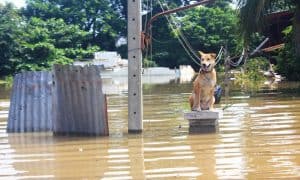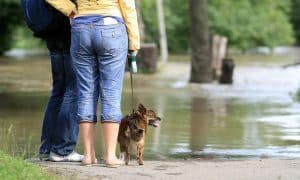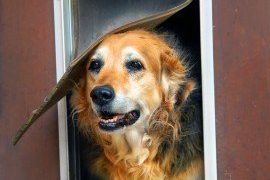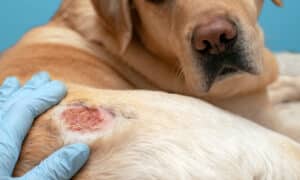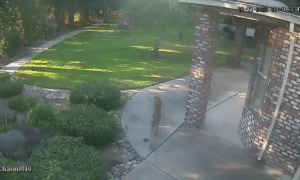“This post contains affiliate links, and I will be compensated if you make a purchase after clicking on my links.”
With last year’s Hurricane Harvey proving to be as big a problem for pet owners as Katrina, Irma leaving Florida in ruins, and Florence now headed for the Atlantic coast, it’s well past time we talk about preparedness, both before AND after disaster strikes.
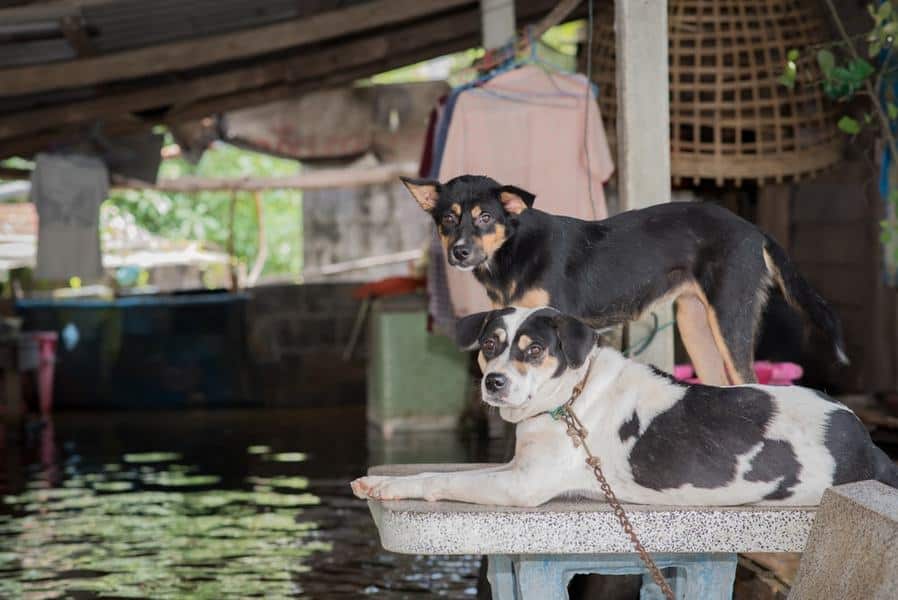
by Dr. Gary Richter, M.S., D.V.M.
Hurricanes Harvey and Irma of 2017 were a disaster on every level – including how to take care of pets. When people are forced to evacuate their homes, they are forced with the decision about bringing their pets with them.
The following is a list of tips for taking care of pets during a natural disaster:
• The best advice is to bring pets with you if it is at all possible. Most pets are not able to fend for themselves under extreme conditions.
• Make sure pets have collars with ID including all current information that could be used to reunite you with them should they be separated.
• Bring food and water for your pets along with current medications.
• Put smaller pets in carriers. Carriers should be fully labeled with current contact information that could be used to reunite you should you be separated. Larger pets need to be on a leash at all times.
• If you have it, bring your pet’s vaccine records and microchip number with you. This will help with identification if you get separated and will help with medical care if it becomes necessary. Make sure your contact information with the microchip company is current so you can be notified if you are separated from your pet.
• Do not allow pets to play in or drink standing water – it is a potential source of disease transmission.
• Pets will not be allowed into all evacuation shelters although animal shelters are sometimes set up nearby human shelters. Find the nearest open animal shelter relative to where you will be.
• If you are separated from your pets, contact the local animal shelter (when possible) and provide them with your pet’s description and identification (such as microchip number). Have a photo ready to share.
• Any kind of natural disaster or evacuation is a stressful time for animals as well as humans. Anxious and fearful animals can sometimes be unpredictable and may bite or scratch. Try to limit the number or people or other animals that approach your pet.
• Once things have calmed down and you are able to return home, leave your pets somewhere safe until you know it will be safe for them to return as well.
Refer to the CDC’s “Pet Disaster Checklist” below when preparing for an emergency:
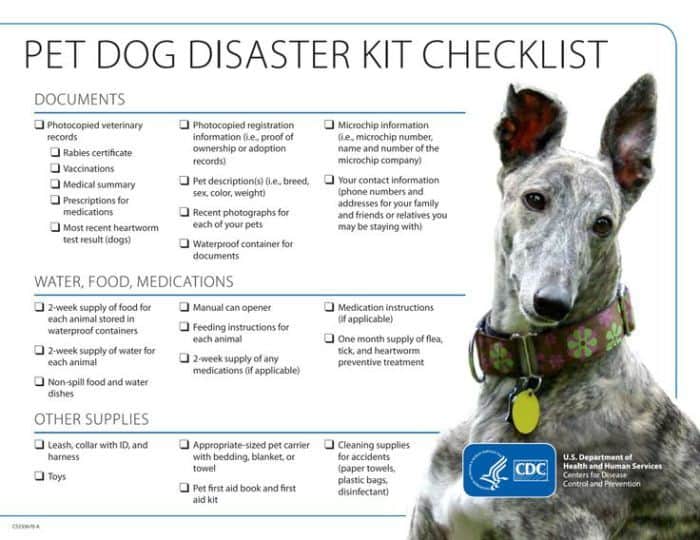
During a natural disaster, we all must work together and help one another. Please do everything you can to help your pets through this difficult time. Above all, stay safe.
Dr. Gary Richter, M.S., D.V.M. is a graduate of the University of Florida with a B.S. in animal science, an M.S. in veterinary medical science, and a doctorate of veterinary medicine with honors. Since 2002, he has been the owner and medical director of Montclair Veterinary Hospital in Oakland, California, and he launched Holistic Veterinary Care in 2009.
Dr. Richter and his two animal hospitals have received more than 30 local and national awards, including Best Veterinary Hospital, Best Veterinarian, Best Canine Therapy Facility and Best Alternative Medicine Provider. Montclair Veterinary Hospital was named one of the top ten veterinary hospitals in 2013 while Dr. Richter was named one of the top ten veterinarians in the United States for 2012, and America’s Favorite Veterinarian in 2015.




